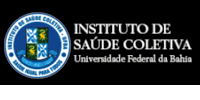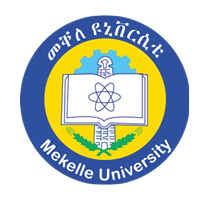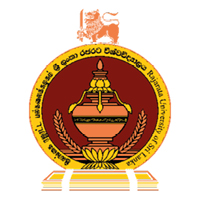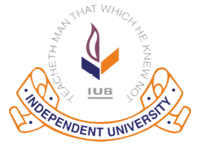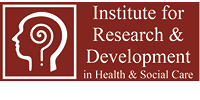IGHW research themes
Mental health is a key determinant of well-being and is essential for individuals to lead healthy and fulfilling lives. Mental health disorders are the leading cause of disability worldwide and the impacts of these disorders are felt across all age groups. Mental health issues can be triggered and are exacerbated by a range of factors, including poverty, conflict, migration, loss of arable land sue to climate change, and urbanization. As such, addressing global mental health requires a multi-faceted approach that tackles the root causes of mental health issues. Poor mental health has a significant economic impact, with the cost of mental illness estimated to be $2.5 trillion globally. These costs are felt through decreased productivity, increased healthcare costs, and loss of lives. Despite the growing focus on mental health there is still a significant deficit of research concerning mental health compared to other areas of health. There is an urgent need to to improve our understanding of mental health issues within marginalised communities and to develop effective, low-cost interventions for them.
Example projects
- STOPS+ - Keele University
- The CONTROL (COgNitive Therapy for depRessiOn in tubercuLosis treatment) programme of research to improve outcomes for depression and TB in Pakistan and Afghanistan.
- Colombia communities project - Keele University
- Improving mental health outcomes in young people living with HIV/AIDS in Lesotho: Moving forward together
- CONTROL - Cognitive Therapy for depression in Tuberculosis treatment: a programme of research to improve outcomes for depression and TB in Pakistan.
- THEHOPE - Traditional healers working with primary care and mental health for early intervention in psychosis in adolescence: an intervention development and feasibility study
Infectious diseases have a huge impact on global health, wealth, and wellbeing. In the recent coronavirus pandemic, an estimated 6.8M people died from SARS-CoV-2 infection, and the excess mortality rate believed to be much higher. The pandemic triggered the largest global economic crisis in living history, and full recovery will take decades. We recognise the urgent need to improve our understanding of emerging infectious diseases and to be better prepared for future outbreaks; this needs to be achieved in parallel to tackling endemic infectious diseases, such as malaria. An important lesson from the COVID-19 pandemic is that effective disease control needs an interdisciplinary approach, addressing the infectious agent and host populations in conjunction with so the social determinants of health and inequalities that increase risk and severity of disease.
Example projects
- ECLIPSE (eclipse-community.com)
- Development of GM mosquitoes for malaria control
- Repurposing heparin for treatment of COVID-19
- Online health information seeking for mpox in endemic and non-endemic countries
Primary care is an essential part of any impactful healthcare system. It offers greater accessibility to communities around the world by securing universal health coverage and tackling the root causes of ill-health such as poverty and social inequalities. To support better health for more people, global health research needs to strengthen and expand primary healthcare, with focus on improving the global provision of accessible, affordable, equitable and comprehensive primary healthcare services. Key research themes include innovative primary care systems, the development of new workforce models, the use of innovative digital technologies, and the impact of primary care on empowering communities and populations around the world.
Significant improvements have already been made to reduce the global burden of diseases among mothers, children and adolescents, but despite these advancements inequalities persist in the health and healthcare provision for these populations. For examples, according to WHO, approx. 800 women die every day of preventable pregnancy- and childbirth-related causes. Communicable diseases continue to endanger children and adolescent, and emerging health threats such as antimicrobial resistance and extreme weather events are on the rise, especially in low-income groups. Recent estimates suggest that 1 billion children globally have no access to education or health services. To build on achievements to date, there is a need to build a roadmap to define and address the shortcomings in maternal, child and adolescent health. Our research provides significant insights into the challenges and opportunities in addressing maternal, child and adolescent health and well-being issues at global levels.
Example projects
Noncommunicable diseases (NCDs) (e.g., heart disease, cancer, chronic respiratory disease, and diabetes) represent major burdens in global health and are the leading causes of death and disability in the world. It has been estimated that NCDs kill approximately 41 million people every year and more than three quarters of these deaths occur in low- and middle-income countries. Around 80% NCDs are preventable by reducing common risk factors such as tobacco and alcohol use, unhealthy diet, air pollution, and sedentary behaviour. Our research is focused on estimating the prevalence of NCDs and associated risk factors and implementation and evaluation of community-based interventions in the prevention, management, and treatment of NCDs. We are working closely with our international partners for strengthening health systems and introducing programme and policies to tackle the burden of NCDs.
Example projects
- Illness perception models of type 2 diabetes with and without depression in Sri Lanka
- MSK conditions in garment factory workers in Sri Lanka
- Jigsaw-A – Joint implementation of guidelines for Osteoarthritis in West Africa
- MSK pain in agricultural workers in Low-middle income countries
Climate change is one of the most significant threats to global health in the 21st Century, the World Health Organisation has identified climate change amongst the top priorities for global health research. The increasing frequency and intensity of extreme weather events, rising temperatures, and changing patterns of infectious disease vectors will challenge global health over the next few decades, particularly amongst vulnerable populations such as children, older adults, and those living in extreme poverty. Heat waves, droughts, and floods can lead to physical problems such as malnutrition and dehydration as well as mental health issues such as anxiety, depression, and post-traumatic stress disorder. Addressing the health impacts of climate change requires a multi-faceted approach that includes the development of measures to help communities prepare for and respond to the health impacts of climate change. Understanding the complex interactions between climate change and health and developing effective interventions to address the health impacts of climate change, is essential to safeguarding the health and well-being of populations around the world.





